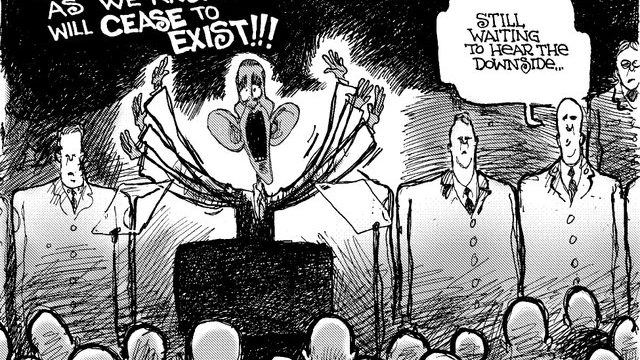Obama's Sequester Fear Mongering Hasn't Convinced The Public

There’s little doubt that the Obama administration is working hard to make what are, frankly, rather modest spending reductions seem really severe and onerous. But is he convincing the public? Not really, according to a poll from McClatchy:
The budget cuts in Washington have not hit home in America, at least not yet.
A plurality of Americans think federal spending cuts will have no effect at all on them or their families, according to a new McClatchy-Marist Poll. At the same time, as many Americans think the cuts will have no effect or a positive effect on the overall economy as think the cuts will hurt the economy, the survey found. …
President Barack Obama has not yet convinced the majority that the cuts will be bad for them and their country as he has tried. He has hoped the country would rise up in anger at the spending cuts and force Republicans to agree to an alternative plan to curb the deficit that includes tax increases and fewer spending cuts.
Not only are Americans not buying the Night of the Living Sequester narrative, but a strong majority feel deficit reduction should be achieved mostly through reductions in government, not tax increases:
Generally, voters by 53-37 prefer to reduce the deficits by mostly cutting government programs and services rather than mostly by raising taxes. Working Americans just had a tax increase in January when Obama and the Congress decided to let a temporary cut in the payroll tax for Social Security expire.
“Voters are not in a mood to increase taxes,” said Miringoff.
Of course, it all depends on which government programs are being cut. When it comes to the biggest areas of problem spending, the poll respondents prefer tax hikes:
-by 60-33 they prefer to raise taxes than cut Social Security;
-by 57-36 they prefer to raise taxes than cut Medicare; …
-by 50-42 they prefer to raise taxes than cut Medicaid.
What’s aggravating is that we aren’t going to get very far toward fixing our deficit and debt problem until the public at large gets an appetite for cutting those three programs down to something we can actually afford.







